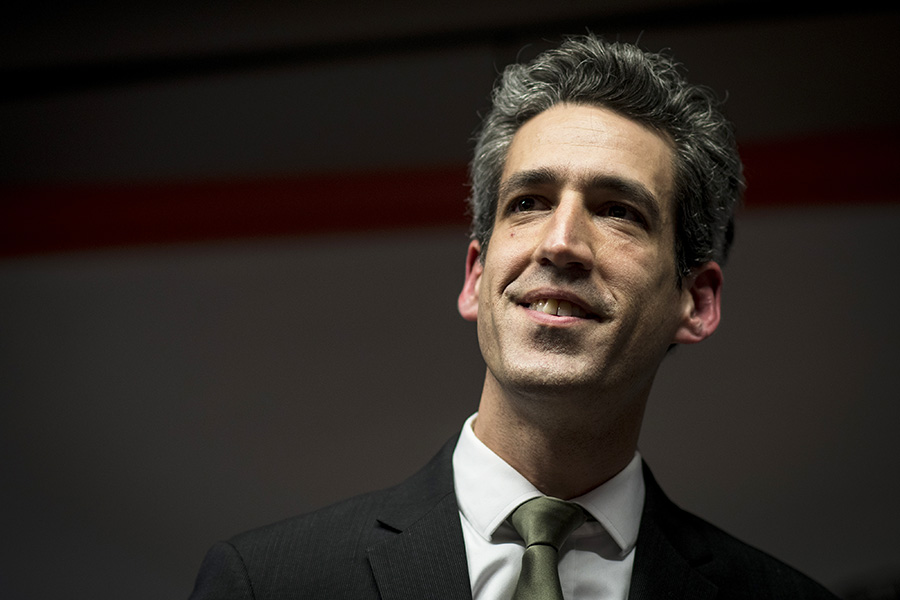What does science have to do with the race for governor in Illinois?

Politics and math don’t usually go hand in hand. But Daniel Biss, a former professor of mathematics at the University of Chicago and an alum of both the Science Talent Search and Intel International Science and Engineering Fair (Intel ISEF), is running for Governor of Illinois.
When he started working as a math professor, Daniel says it was his dream job. But he became frustrated with where our country was headed under George W. Bush. He wanted to do something and joined John Kerry’s presidential campaign.
Fast forward to 2018. Daniel has now been involved in politics for several years, serving in the Illinois Senate since January 2013.
Daniel (Westinghouse STS 1995, ISEF 1995) believes he can turn the Illinois government to focus on the people. “Can we use this moment in our history to build politics to do something different? I believe we can, and that’s why I’m running,” he said.
Science and politics can and do sometimes intersect. To Daniel, science is a way of thinking about the world, and politics is what you do in the world. “There’s no activity in life that doesn’t benefit with a fluency of scientific thinking,” Daniel said. “Politics is certainly no exception.”
In 2015, Daniel proudly helped enact the Illinois Secure Choice Savings Program Act by sponsoring and championing the legislation. Secure Choice makes Illinois the first state to fully require employers to offer their workers retirement benefits, which, according to Daniel, benefits 2.5 million people. “It’s an important part of creating an economy that actually works for people to live with dignity in the 21st century,” Daniel noted.
Being a mathematician helps him to understand complicated information, Daniel explained. “You’re able to ask skeptical questions, challenge your own assumptions and biases,” he said. “Those are really valuable skills in an arena where you’re constantly exposed to new information, some of which is unreliable and much of which comes from biased sources.”
He fell in love with math as a kid. In high school, Daniel was fascinated when he started learning about measure theory and integration. “One summer I realized what a beautiful playground these extraordinary ideas are. It was enchanting,” he said.
Daniel received his undergraduate degree from Harvard and his Ph.D. at MIT, both in mathematics. His accolades include the 1999 Morgan Prize for his outstanding research as an undergraduate, and the Clay Research Fellowship from 2002-2007.
Additionally, he helped young adult novelist John Green do a lot of the math in “An Abundance of Katherines,” even writing the book’s appendix, which explained the math in the book. John and Daniel are friends; Daniel shared that “it was a privilege to get to see the inside of John’s head during the process of writing.”
Daniel’s advice for young people interested in STEM? Read, think, experiment, and most importantly, persevere despite failures or obstacles. “The last and hardest advice is to try to learn broadly,” Daniel suggested. “When I was in high school, I just read math books. But novels are pretty important too, and knowing about history is important.” Working on science fair projects was also meaningful to Daniel. “I was never that great in competitions,” he said, “but I know they’re a great motivator for some people.”
There’s no activity in life that doesn’t benefit with a fluency of scientific thinking. Politics is certainly no exception.
Daniel believes that breadth of knowledge and curiosity is crucial to succeed as a politician or mathematician. “The value of that breadth is especially important in politics, because it’s easy to get stuck in narrow thinking,” Daniel said. “God help us if our leaders are making decisions based on a narrow worldview.” He explained: It’s so important to show up and listen, to learn about challenges faced by your community to help make it better.


